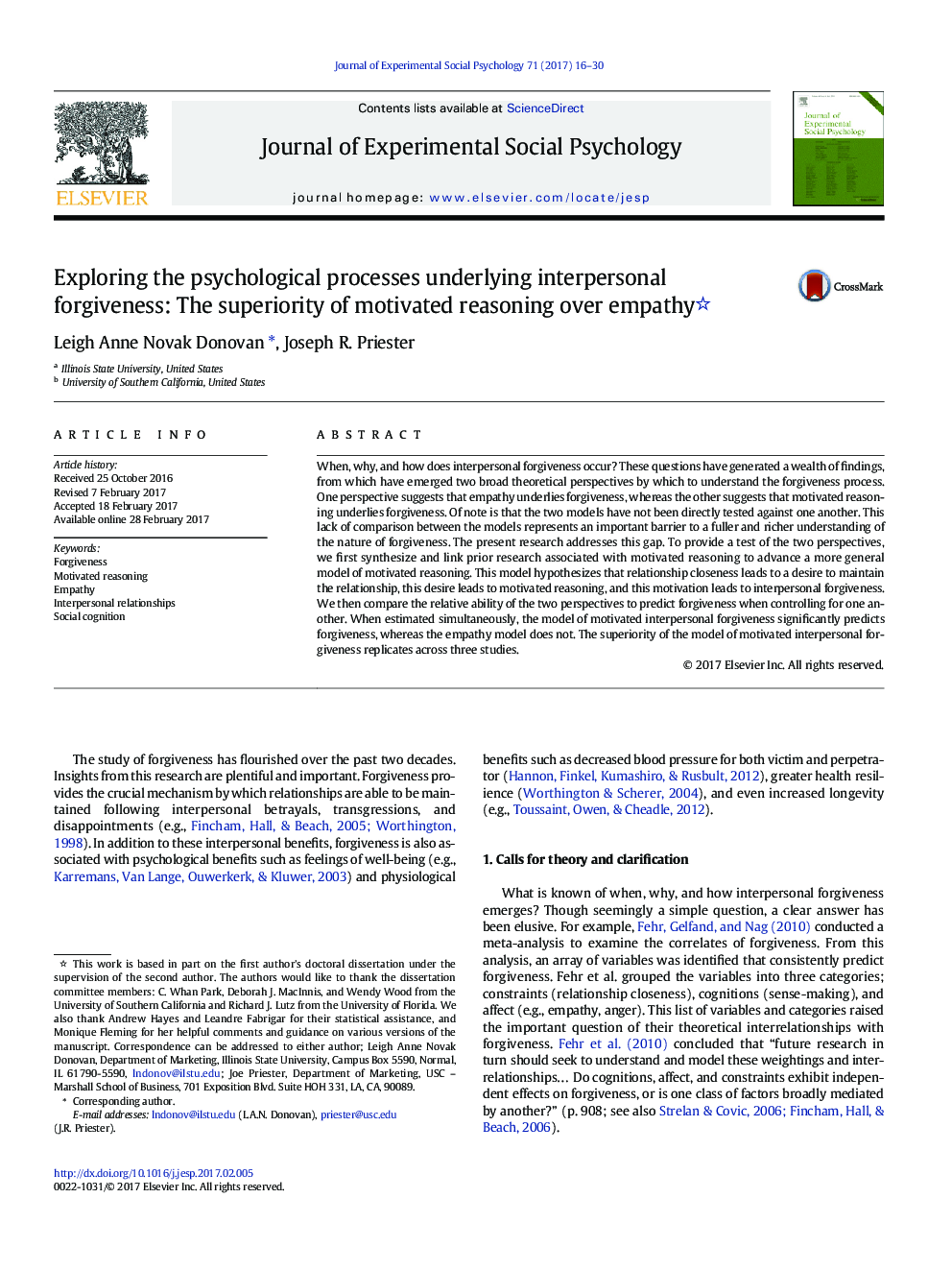| Article ID | Journal | Published Year | Pages | File Type |
|---|---|---|---|---|
| 5045609 | Journal of Experimental Social Psychology | 2017 | 15 Pages |
When, why, and how does interpersonal forgiveness occur? These questions have generated a wealth of findings, from which have emerged two broad theoretical perspectives by which to understand the forgiveness process. One perspective suggests that empathy underlies forgiveness, whereas the other suggests that motivated reasoning underlies forgiveness. Of note is that the two models have not been directly tested against one another. This lack of comparison between the models represents an important barrier to a fuller and richer understanding of the nature of forgiveness. The present research addresses this gap. To provide a test of the two perspectives, we first synthesize and link prior research associated with motivated reasoning to advance a more general model of motivated reasoning. This model hypothesizes that relationship closeness leads to a desire to maintain the relationship, this desire leads to motivated reasoning, and this motivation leads to interpersonal forgiveness. We then compare the relative ability of the two perspectives to predict forgiveness when controlling for one another. When estimated simultaneously, the model of motivated interpersonal forgiveness significantly predicts forgiveness, whereas the empathy model does not. The superiority of the model of motivated interpersonal forgiveness replicates across three studies.
